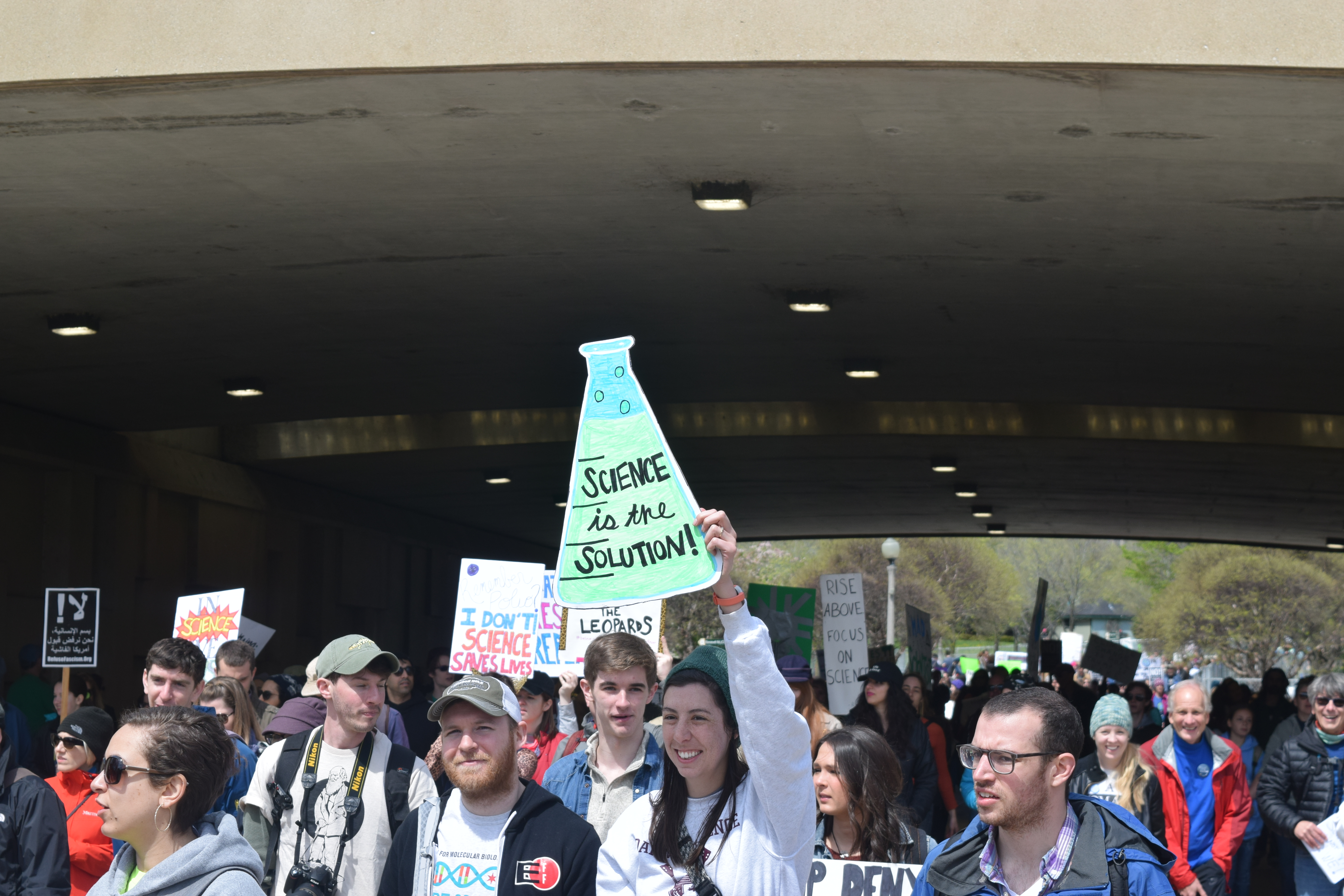It’s 5:30am, Saturday morning. We have to get the family together. We check the weather. It’s cold out. Pack accordingly. We have to get out the door soon or we miss the march. Drive to the metra train station and we are on our way.
It’s my first protesting march, the march for science Chicago. I wanted to be there for women, I watched the not my president protest. I followed the release your taxes protests. Protesting seems to be the thing this year, but is it a result of the majority not feeling heard due to the recent presidential election ignoring the popular vote ,or is it the latest craze like flash mobs in 2009? Either way, I get to see my 2 year old go nuts when he gets to ride the train.
So why this one? This May, I complete my second science degree and start toward my third. I love science. I love what it has done for my outlook on life. I love what I can do with it. I hate that more people don’t have faith in themselves to be able to understand it. So I march!
I march for science to be funded. I march for science to be promoted in schools. I march for our future.
But why does science need to be marched for. According to Kristen Gunther of www.marchforscience.com the march was to show the public presence behind the movement and raise awareness to ask our leaders to listen and act on the following points.
- Sustaining and strengthening scientific integrity
- Using the best-available science to make policy and regulatory decisions
- Investing in and encouraging research and development in the public sector, and incentivizing investment in research and development in the private sector
- Supporting broad participation and access to diverse communities’ talents and perspectives
- Facilitating open communication and collaboration between scientists and the broader public
- Encouraging scientists to take an active role in public life and policy
- Creating an environment that fosters a vibrant and diverse international scientific community
- Building capacity for science education that draws on best-available knowledge and instructs students in scientific practices
